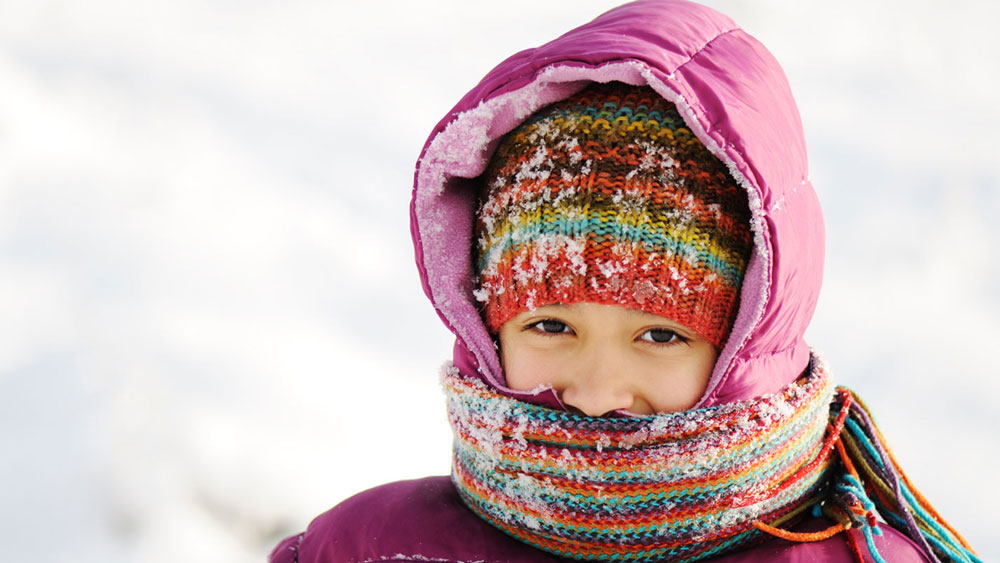
As Americans face the harsh reality of spending nearly a year in a pandemic, many families know how important it is to continue staying home to stop the spread of COVID-19. Although 93% of children have seen a doctor in the last year, most of us don't want any reason to worry about the health of our kids -- so continuing to follow health and safety precautions is essential.
But of course, that doesn't mean your children have to spend all winter cooped up in the house. Outdoor play can be a great way for your kids to get some much-needed exercise and enjoy everything nature has to offer. That said, you'll need to make sure they're properly protected. Although systems like hydraulic load cells can withstand temperatures of -76 degrees Fahrenheit, your kids can't stay safe without the proper winter gear to protect them from freezing temperatures. With that in mind, here are some tips that can keep your kiddos perfectly cozy and safe whenever they venture out into the snow or cold conditions.
Always Dress in Layers
One of the best tips is also one of the most basic: always dress in multiple layers of clothing when venturing outdoors in winter. Because children lose body heat more quickly than adults, wearing several thin layers of clothing can help keep kids warm while allowing them to remove something if they happen to get overheated. Although fabrics like cotton are beloved for their breathability, that's not ideal in the wintertime; instead, opt for wool or fabrics that actually retain heat without absorbing water. Opt for waterproof coats and gloves, as well as thick socks and a warm scarf and hat. Children typically need one extra layer compared to what adults wear.
Swap Out Wet Garments
wearing layers is important, but so is swapping out any layers that happen to get wet or sweaty during playtime. Mittens, scarves, hats, and socks can easily become wet with snow, so make sure to pack or bring along extras so that playtime doesn't have to end early. When coming inside for a break, make sure to get your kids changed into something warm and dry -- and stick their socks, boots, or scarf on top of the warm air register to dry them more quickly.
Remember to Hydrate
You may be worried about the wet snow, but your kids still need to drink water. The air is actually very dry during winter -- and with all that playing outside, they'll need to drink even more H2O. Encourage your kids to hydrate before and during playtime, as this can keep them energized while keeping hypothermia at bay. You'll also want to apply moisturizer and some kind of lip protectant to seal in hydration and protect their exposed skin. After they return from playing outdoors, make sure to serve soup, herbal tea, hot cocoa, and other foods and beverages that will help them rehydrate.
Check For Signs of Danger
Taking frequent breaks from outdoor play, particularly when the temperatures are quite cold, is an important part of keeping your kids safe. Around 20% of Americans will develop heart failure during their lifetime, which is why it's so important for us to take time to rest when we're exerting ourselves in cold conditions. While heart-related concerns may be rarer in children, health issues like hypothermia and frostbite are often more common in younger folks. Be sure to check on your kids frequently and watch for signs of these conditions, which can include red skin, low energy levels, weakness, dizziness, confusion, drowsiness, burning, numbness, or slurred speech.
If you suspect frostbite is setting in, bring your child indoors immediately and place the affected parts of their body in warm water, being careful not to rub these areas. After a few minutes, dry off the areas, cover your kiddo with warm blankets, and bring them a warm drink. If their numbness doesn't improve after a few minutes, contact your physician. For hypothermia, call 9-1-1 right away and bring your child indoors. Remove any wet clothing and wrap them in warm garments and blankets until help arrives.
Playing outdoors in the winter can be a lot of fun, but it can be dangerous in certain ways. Parents should pay close attention and prepare their kids properly for cold conditions in order to get the most out of seasonal activities.


























